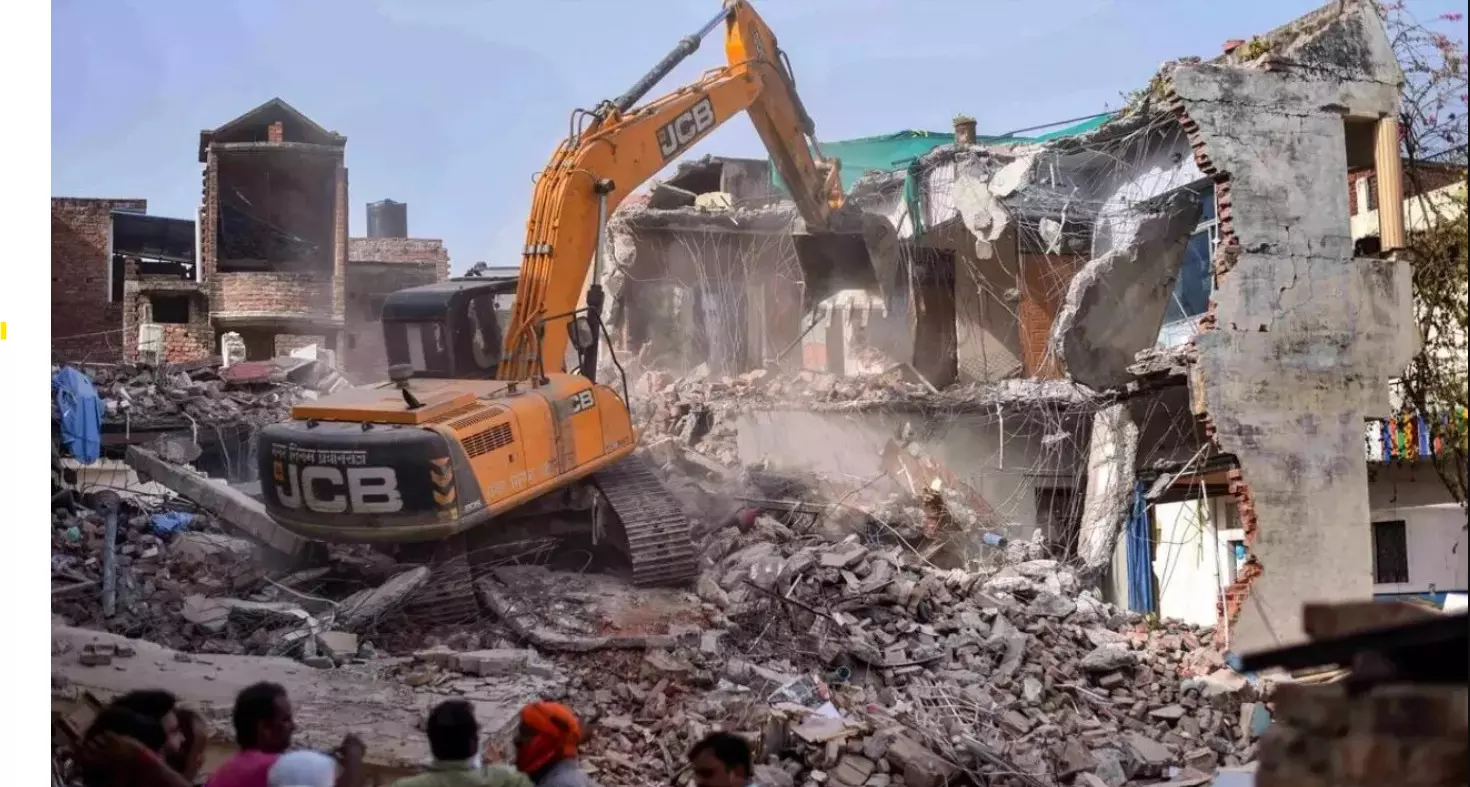A comforting intervention

The Supreme Court’s recent interim order halting demolitions across the country without its explicit permission is a strong and authoritative disapproval regarding the use of bulldozers as a tool for justice. Over the past few years, the method of "punitive demolition" has been gaining traction in various states, where the homes of individuals accused of crimes are razed, allegedly without due process under the garb of combating illegal constructions. It goes without saying that such an arbitrary trend raises troubling questions about the misuse of power, the erosion of legal protections, and the broader implications for constitutional rights. The Supreme Court’s order reflects its concern about the potential for executive overreach in these demolitions, especially when such actions appear to be taken as a punitive response to criminal accusations. As Justice KV Viswanathan puts it, even a single instance of illegal demolition is "against the ethos of the Constitution." The Court’s emphasis on the need for judicial oversight in demolitions is a welcome move. It highlights the importance of adhering to the rule of law rather than resorting to unjust, arbitrary measures.
Unfortunately, the ‘bulldozer’ has become a notorious symbol in political discourse, particularly in BJP-ruled states where CMs have made it synonymous with swift, albeit harsh, governance. However, this symbolic appeal masks the deeper, more insidious problem of targeting vulnerable populations and using the machinery of the state to inflict punishment without recourse to legal protections. The Samajwadi Party's Akhilesh Yadav has rightly flagged the "destructive politics" at play behind bulldozer action. There is ample evidence suggesting that the deployment of bulldozers disproportionately affects marginalised communities, perpetuating social and economic inequalities. The narrative of ‘bulldozer justice’ transcends beyond law enforcement; it is a manifestation of selective state action, often seen as a means to terrorise or silence dissenting voices, in an unconstitutional and inhumane manner.
The Solicitor General of India, Tushar Mehta, in defending the demolitions, insisted that these actions were not linked to the criminal accusations but were based on violations of municipal laws. However, the Supreme Court was unconvinced, questioning the timing of these demolitions, which often follow closely on the heels of criminal allegations. Justice BR Gavai’s observation that the executive "cannot be the judge" in these matters points toward the principle that due process must be followed, regardless of the circumstances surrounding a crime. The Court’s intervention is no doubt a safeguard for fundamental rights, including the right to life and the right to property under Article 21. Even if an individual is accused or convicted of a crime, their home cannot be demolished without due legal procedure. The Supreme Court’s intention to lay down pan-India guidelines for demolitions is an important step toward ensuring that state authorities are held accountable for their actions. The absence of clear regulations has allowed various state governments to act arbitrarily, using demolitions as a tool for extrajudicial punishment.
Nevertheless, the interim nature of the Court’s order leaves room for continued misuse of demolitions in the short term. The Court’s ultimate decision, expected after the next hearing, will be crucial in determining the extent to which the states’ use of bulldozers will be constrained by constitutional principles. The Supreme Court’s interim order halting demolitions represents a much-needed check on the growing trend of bulldozer justice in India. The order signals the judiciary’s intention to uphold the rule of law and protect citizens from arbitrary state actions.



